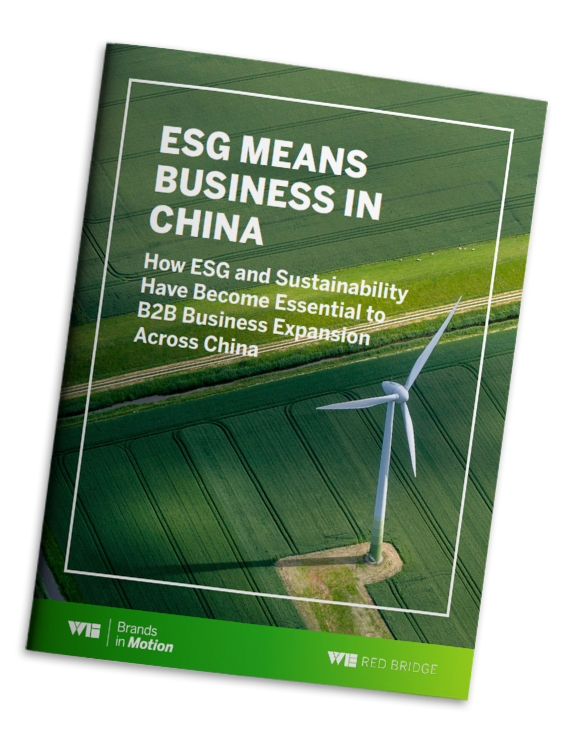



No Longer Optional
ESG in post-COVID China: B2B brands must act now, or risk losing out »


From Generating Awareness to Converting Sales
ESG means business in China. Find out what B2B brands can do about it »
Brands In Motion 2023: ESG Means Business in China
Sluggish economic performance. Workforce pressures. Low consumer confidence. As China continues to look for a return to growth in a post-COVID environment rife with disruptions, many B2B brands see having a strong ESG (environmental, social and governance) proposition as increasingly instrumental to business success.
We.’s 2023 Brands in Motion special report, “ESG Means Business in China,” takes a closer look at the evolution of ESG in China, and the key implications for B2B brands operating in the country — from generating awareness to converting sales.
What We. Found
-
ESG is no longer optional for B2B brands operating in China. Nearly all respondents say they will spend the same amount or more on sustainability-related marketing and communications this year compared to last.
-
The “E” in ESG dominates, but not exclusively. While environmental focuses remain the most popular areas, employee development is now the second-most important area of focus for the year ahead, with 57% viewing it as “essential” to their ESG strategy.
-
Bigger businesses are leading the way. Corporations tend to see greater value in ESG initiatives than smaller companies do. Fifty-two percent of companies with 5,000 or more employees see ESG’s benefits in areas such as brand awareness, while only 45% of smaller companies feel the same way.
Key Takeaways

Let the audience be your lodestar
Identify your key audience and tailor your ESG communications towards them.

Multinationals must balance domestic and international expectations
Tailor communications materials to different markets for the best results.

How you choose to tell your ESG story matters
Social posts and short-form videos are viewed as the most effective ways to communicate.


